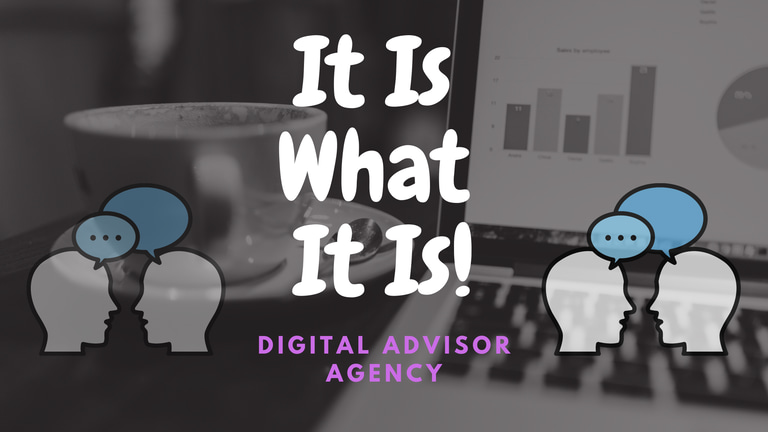Overcoming Fear with Technology
How to Overcome Your Fear of Technology and Boost Your Accounting Career
10/12/20233 min read


Overcoming the Fear of Technology!
How to Overcome Your Fear of Technology and Boost Your Accounting Career Technology; is changing the accounting profession at a rapid pace. From cloud computing and artificial intelligence to blockchain and big data, accountants are facing new opportunities and challenges in their work. However, not all accountants are ready to embrace these changes. Some may feel anxious, overwhelmed, or threatened by the new technologies and their impact on their roles and responsibilities.
If you are one of those accountants who are feeling fearful of technology, you are not alone. According to a survey by the World Economic Forum, accountants have a 95% chance of losing their jobs as machines take over the number crunching and data analysis1. However, this fear is largely unfounded and based on misconceptions about the capabilities and intentions of technology. Technology is not here to replace accountants, but to enhance and empower them.
In this blog post, we will explore some of the common fears that accountants have about technology and how to overcome them.
Fear #1: Technology will make me obsolete.
This is perhaps the most common and understandable fear that accountants have. After all, technology can perform many tasks faster, cheaper, and more accurately than humans. However, this does not mean that technology will make accountants obsolete. On the contrary, technology will create new opportunities for accountants to provide more value-added services to their clients.
Technology can automate the repetitive, tedious, and low-value tasks that accountants have to do, such as data entry, transaction sorting, and tax compliance. This will free up time and resources for accountants to focus on more strategic, creative, and advisory tasks, such as tax planning, business analysis, risk management, and consulting. Technology can also provide accountants with access to more data, insights, and tools to help them make better decisions and recommendations for their clients.
Therefore, instead of fearing technology, accountants should embrace it as a partner that can help them improve their efficiency, quality, and profitability. Accountants should also invest in continuous learning and upskilling to keep up with the changing demands and expectations of their clients and the market.
Fear #2: Technology is too complex and difficult to use.
Another common fear that accountants have is that technology is too complex and difficult to use. They may feel intimidated by the technical jargon, the steep learning curve, or the potential errors and risks involved in using technology. They may also feel reluctant to change their existing workflows and processes that they are comfortable with.
However, technology is not as complex and difficult as it may seem. In fact, many accounting technologies are designed to be user-friendly, intuitive, and secure. For example, cloud-based accounting software allows accountants to access their data and applications from anywhere, anytime, and on any device. Artificial intelligence and machine learning can provide accountants with smart suggestions, alerts, and feedback to help them work more effectively. Optical character recognition (OCR) can scan and extract data from documents automatically. Robotic process automation (RPA) can execute predefined tasks without human intervention.
Therefore, instead of avoiding technology, accountants should explore it with curiosity and openness. They should also seek guidance and support from their peers, mentors, or experts who can help them learn how to use technology properly and safely. They should also be willing to adapt their workflows and processes to leverage the benefits of technology.
Fear #3: Technology will reduce my human connection with my clients.
A third fear that accountants may have is that technology will reduce their human connection with their clients. They may worry that technology will make their interactions with their clients more impersonal, distant, or cold. They may also worry that technology will erode their trust and rapport with their clients.
However, technology does not have to reduce the human connection between accountants and their clients. In fact, technology can enhance it by enabling more frequent, convenient, and personalized communication. For example, video conferencing tools can allow accountants to meet with their clients face-to-face without traveling or scheduling conflicts. Chat bots can provide instant answers to common questions or requests from clients. Social media platforms can help accountants build their online presence and reputation among potential clients.
Therefore, instead of fearing technology, accountants should use it as a tool to strengthen their human connection with their clients. They should also remember that technology cannot replace the human skills and qualities that accountants need to succeed in their profession, such as empathy, ethics, judgment, creativity, and communication.
Conclusion
Technology is not something that accountants should fear but embrace. Technology can help accountants improve their efficiency, quality, profitability, learning, communication, and value proposition. Technology can also create new opportunities for accountants to grow their careers and businesses in the digital age.
However, embracing technology requires a mindset shift from fear to curiosity; from resistance to adaptation; from complacency to innovation. Accountants who can overcome their fear of technology will be able to thrive in the accounting profession of the future.


